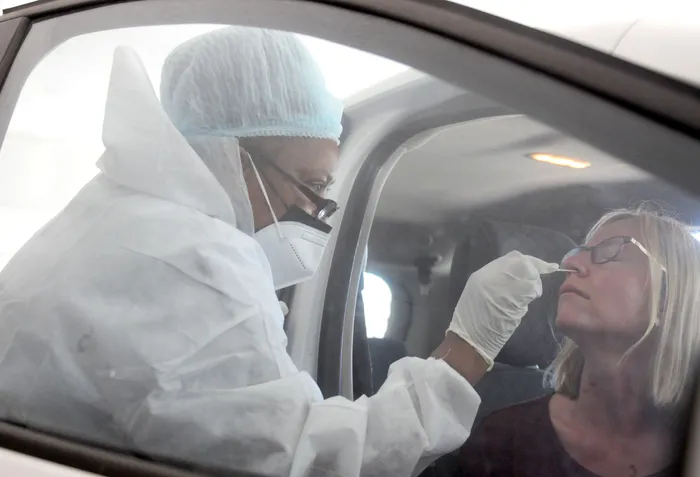‘SA is better prepared to handle the 4th wave’ says medical expert

CAPETONIANS who need to test for Covid-19 have been making their way to a number of drive-through testing centres. Photographer Ayanda Ndamane African News Agency(ANA)
DURBAN – South Africa is better prepared to face new variants because people are familiar with prevention precautions now.
According to clinical risk expert Dr Jacques Snyman, medical advisor to Health Squared medical scheme, people need to ask themselves if they are following guidelines diligently or have they become complacent.
"While there are still many uncertainties around the Omicron variant, new strains are not unexpected because messenger RNA viruses such as Covid-19 tend to mutate more readily, driving the creation of new variants. While most of these mutations fizzle out very quickly, some survive and go on to infect other people," he says.
Snyman says in the beginning, a new virus like Covid-19 spreads quickly as very few people have a natural immunity against it. He says as more people are infected or get vaccinated, immunity increases and the wave dies down.
“However, as the virus mutates into new variants, the wave starts up again. This will keep happening until we have achieved herd immunity, which will stop new variants from infecting people. Unfortunately, we are nowhere close to herd immunity and can expect these waves to continue for quite some time,” Snyman says.
He says the Covid-19 fourth wave in a number of countries in Europe – where vaccination uptake has been considerably higher than South Africa has managed to achieve – case numbers have been high and in some instances record-breaking, in recent months.
Snyman says while a long-term vaccination strategy may be needed, the Covid-19 vaccines that South Africa has access to now, in combination with non-pharmaceutical prevention measures and taking care of one’s general health, remain South Africa’s best available tools to reduce our individual clinical risk.
Dr Snyman advised everyone to get their Covid-19 vaccinations and any boosters they are eligible for as soon as possible.
“Not only will you be protecting yourself, but you will also help to stop the virus’ spread to your family, friends, loved ones, and fellow South Africans, although even vaccinated individuals must continue to follow the necessary precautions.
"People with co-morbid conditions, such as diabetes, cardiovascular (heart) disease, or obesity, are at higher risk of becoming very ill from Covid-19 and, in addition to being vaccinated as soon as possible, should take particular care that their conditions are well managed,” Dr Snyman says.
He says South Africa is in a better position compared to the same time last year as Covid-19 vaccines are now readily available.
“We know the importance of wearing a mask when we are around people who are not part of our household, washing and sanitising our hands. We must also maintain safe social distancing and avoid crowded and poorly ventilated areas by now. If you do not feel well, self-isolate and seek medical advice,” Snyman says.
IOL
How businesses can navigate through the 4th wave during the festive period
SA enters 4th wave: 7 provinces record sustained increases in new Covid-19 infections
Western Cape in process of assessing risk from Omicron variant
Omicron variant: I am expecting we will top over 10 000 cases by end of the week per day, says Prof Karim
Related Topics: